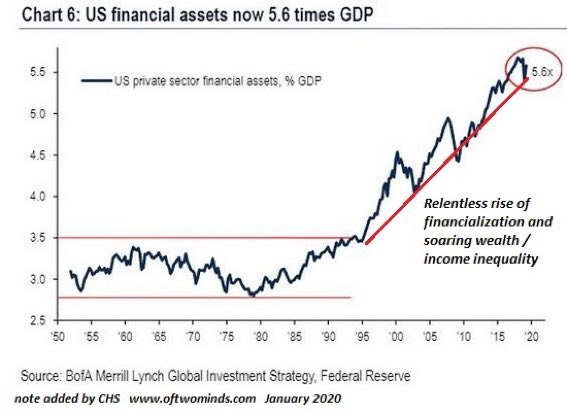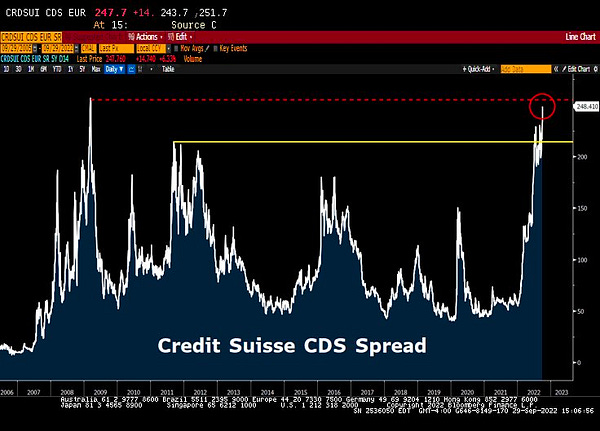In the last edition of the newsletter, I spoke about how the powers that be may be priming the pump for a Fed pivot.
This doesn’t mean said pivot will come tomorrow, though.
In fact, the Fed will likely charge forward with its current approach for now because of the strength of the real US economy.
On Friday, the US Jobs report dropped, and it showed that the real US economy is strong.

(The market currently prices bitcoin as a risk asset, and my educated guess is that we will see a downward move in bitcoin’s price tomorrow. Not financial advice.)
And because we live in upside down world, a good jobs report now translates to losses for stocks and bonds.
Let me say that again: When the real economy is doing well, it’s bad for the financial economy (and vice versa). INSANITY.
Here’s this dynamic at play through another lens:


So, I don’t know exactly when the Fed pivot will come.
There are a host of factors that could prompt it in the short term (e.g., the outbreak of a war, the collapse of a major financial institution) that no one can predict.
But there will come a time when it has to put the money printer to work again just to service the interest on our public debt.


I wrote about this dynamic in greater detail in this edition of the newsletter.
This is what happens when you prioritize the inflation of asset prices for almost three decades.


I share information because the Fed may still have some room to push for a contraction of the system now, but it will run out of runway at some point.
We live in a credit-based system, and if the extension of credit in this system contracts too much, the system implodes.
This is why I subscribe to the idea that we’ll either have a melt-up or a meltdown.
I’ve heard and read that lots of funds and money managers are apparently holding cash right now (though, I’m not sure of this, as I haven’t seen the data) and waiting for a Fed pivot to re-enter the market.
When the Fed does pivot, that money entering the system will likely cause a tsunami (AKA a melt-up and then a crash).
But the Fed may also just bring the financial system down on its own accord.
Right now, Powell and his cronies are acting like big tough guys - or the Fed of the 1930s, a Fed that kept rates high, which sustained the Great Depression. If they keep acting this way, the system will collapse.
I haven’t ruled the idea of this happening out, but I’m more of a believer in the idea that this little tough guy charade will have to end before a massive collapse. (That’s just my bias coming through, though.)
I hold the views I do because the main difference between this Fed and any Fed or yore that hiked rates aggressively, is that the US has never been as indebted as it is today, which brings me back to a point I made earlier: We’ll have to print money just to service the interest on our debts. Or we default on them, which would bring about a whole host of other issues.
PayPal Gets Cute
Yesterday: PayPal updates its use policy to state that, as of Nov. 3, 2022, it will be able to withdraw $2,500 from your account if they find something you’ve posted online “objectionable.”


Also yesterday: Twitter ratios PayPal so hard that the company pretends that it never intended to insert such a clause into its policy.



Update on Credit Suisse
Substack just warned me that this edition of the newsletter is near the email length limit, so I’ll just leave this here for you if you want to watch.
TL;DW - Credit Suisse isn’t in as much trouble as some originally indicated, but it isn’t in great shape either - and investors are losing confidence in the institution.


Best,
Frank
Twitter: @frankcorva










